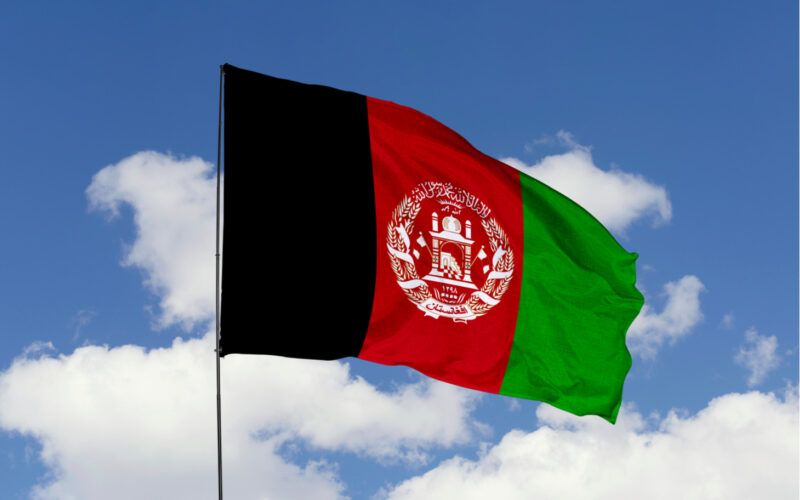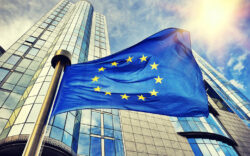On Friday, I ask Nigel Farage about whether the mess in Afghanistan would lead to a repeat of Europe’s 2015 refugee crisis. He said something which shocked me about the connection between that crisis and Brexit.
Today, we take a closer look at whether the situation in Afghanistan is going to cause another crisis for the European Union (EU). That would be wonderfully ironic given that all the attention is currently being paid to President Joe Biden and the American empire instead.
And yet, it’s not the Americans I’m worried about. Comparatively speaking, anyway…
Remember, the EU is already looking very fragile. Euroscepticism is riding high, buoyed by the credibility of Brexit.
The euro area is emerging from the pandemic with very poor economic performance, (not to mention its performance prior to the Covid-19 crisis). Matthew Lynn summed it up in the Telegraph:
The global economy is bouncing back strongly, but there is one exception.
The eurozone. It is the weakest link in the global economy, and it could be years before it claws back to 2019 levels of production and output.
Even worse, it isn’t the first time that has happened. After 2008-09, the eurozone also saw the weakest and slowest recovery from the crash. A coincidence? Not really.
[…]
The zone is not about to collapse. But with each turn of the cycle, it emerges a bit poorer, a bit smaller, and a bit weaker – and there is no sign of that changing.
I’m not so sure about the lack of a collapse given another refugee wave is heading their way. But… I’ll get back to that in a moment.
First, let me ask you a pair of questions. Which two economically advanced nations are expected to be the slowest to recover from Covid economically under OECD projections?
I’ll give you a hint with these two headlines: El País: “Spain has highest share of fully vaccinated people of world’s large countries”. And the Washington Post: “Iceland has been a vaccination success”.
And yet, the two nations which performed especially admirably on vaccines are now expected to take the longest to recover. They’re the only two which still won’t have recovered economically by the end of next year.
If the projections are right, which they likely won’t be, only four of the ten fastest nations to recover are in the EU, while 11 of the worst 12 are in the EU.
That is going to hurt, electorally…
… but not as much as an immigration crisis would. The Telegraph summed that up well too:
The European Union is “intensifying” its work with Turkey in an attempt to prevent a flood of refugees from Afghanistan from reaching Europe’s shores.
But Turkey, which is already home to more refugees than anywhere else in the world, has warned it is not prepared to “the border guard or refugee camp of the EU.”
The governments of Greece and aspiring EU member Turkey have been busy copying former US President Donald Trump and Hungary’s current Prime Minister Viktor Orbán by building and extending their border walls.
The Germans say that they don’t want a repeat of 2015.
Hardliner Austria, which copped a disproportionate amount of refugee traffic in 2015 after German Chancellor Angela Merkel’s open invitation, is not interested in another repeat either.
But, I suspect that French President Emmanuel Macron is right when he says the EU “must anticipate and protect ourselves against significant irregular migratory flows.”
Why? What’s changed from 2015?
The electoral map, that’s what. Eurosceptics are a real threat.
Back in 2015, my mum had just moved to Austria and even helped house four refugees… in her home. I chatted to plenty of other refugees at train stations. They all spoke fluent English and all knew where they were heading eventually… home near you, and not in Continental Europe.
What I noticed in Austria was how a small town went from welcoming the refugees wholeheartedly to… not being so welcoming.
Conveniently, I was also in Bodrum, Turkey, when the refugee crisis was peaking there.
Unfortunately, I spent much of my visit in a hospital after taking codeine on an empty stomach and passing out on to a small group of Swedish doctors I happened to be talking to at the time. Shortly after, I did it again, which is apparently very rare.
In the end, it took some local fixers to rescue me from my hospital, which wouldn’t let me go until had I paid for a bizarre collection of tests which were completely unrelated to my cough or the codeine that was supposed to stop it. The Australian health insurer got the bill. I’m assuming that they paid, but I’m not going back to Turkey to find out.
The bottom line is that I learned a lot about Turkey, but none of it is relevant to refugees. Meanwhile, there are three and a half million Syrian refugees in Turkey who would presumably be happy to join a movement towards Europe…
Anyway, given the extraordinary turmoil of 2015, you can imagine what a repeat would look like.
It’s not just another refugee crisis, of course. There will be plenty for Europe’s voters to be furious about. And there are some key elections coming up to vent that anger.
It’s going to be extraordinary to watch. But never forget all this portends a crisis should the EU or euro area get into real strife. And our financial markets are tied at the hip to that crisis.

Nick Hubble
Editor, Fortune & Freedom



